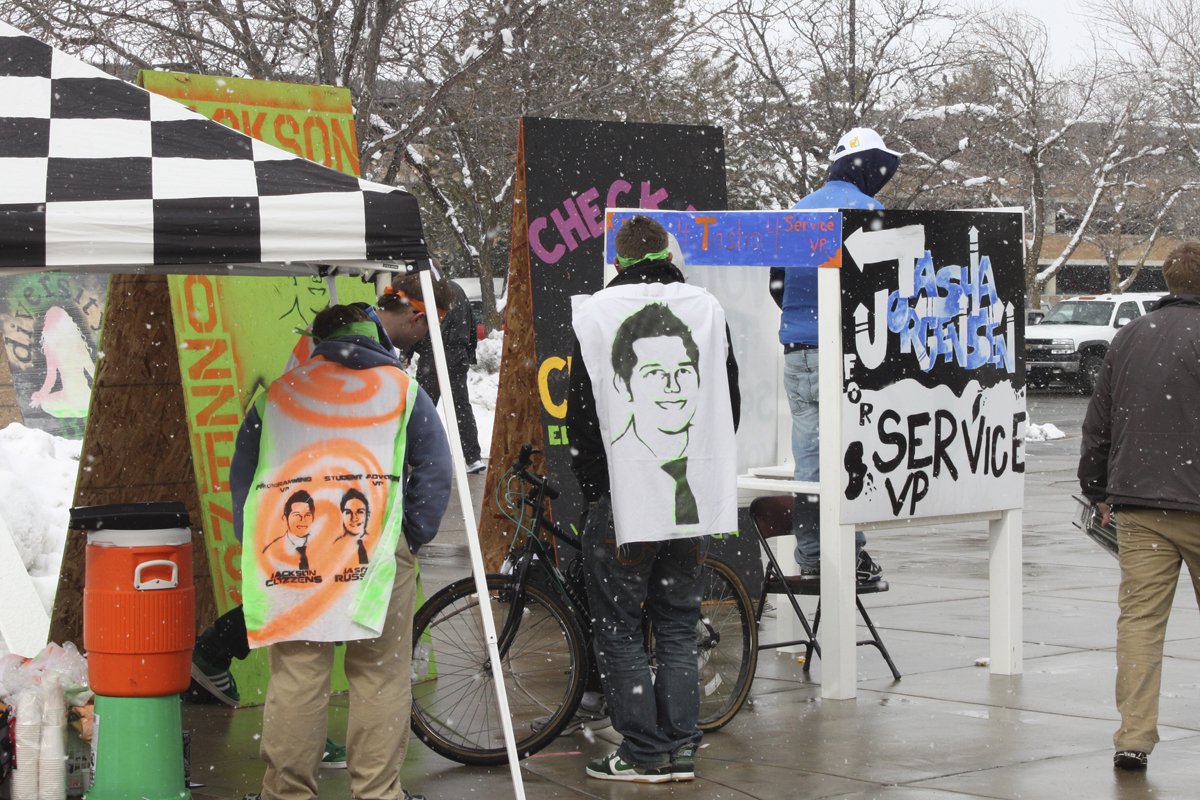Ag and business colleges show best voter turnout
Though the College of Education and College of HASS had the highest total voter turnout in the most recent ASUSU elections, they did not have the highest percentage of voters within each college.
According to the numbers on USU’s enrollment summary, the College of Agriculture has had more than 1,100 students enrolled in the past two years and the College of Business has had between 1,400-1,500, making both colleges’ approximate voting percentage around 40 percent. This makes the business school the college with students most involved in the recent elections.
The education college ranked first in total voter turnout for the ASUSU senator race with 700 students who participated, however 700 students compose approximately 20 percent of the entire student population in this college.
HASS came in second with 613, Business in third with 585, Agriculture came in fourth with 498, Engineering came in fifth with 451, Arts came in sixth with 334, Science was seventh with 324 and Natural Resources came in last with 122.
Mary-Ann Muffoletto, public relations specialist for the College of Natural Resources, said the low number of total participation in her college could be because the college is the smallest at USU. Over the past two years, it has had about 450 students enrolled per semester.
“The College of Natural Resources is an active, close-knit college and its students are involved in many university-wide initiatives,” she said, “For example, many natural resources students worked hard during the ASUSU campaign toward passage of the Blue Goes Green student fee.”
According to USU statistics, the colleges of Arts, HASS and Natural Resources had approximately 30 percent of students vote. The colleges of Education, Engineering and Science had about 20 percent of students vote in the college senate races.
Scot Marsden, next year’s business senator, said one of the reasons voter participation was so high in the school of business this year was because of “high candidate competition for business senator.”
This year six candidates ran for the position.
He said as part of his campaign he and his campaign volunteers would ask students in the business college if they had voted and if they had not, they would invite the students to vote on computers the campaigners had available. He said he and his volunteers also campaigned at student housing and spoke to students individually about voting.
“I’ve noticed that the administration … treat the student leaders with great respect and seek out their advice and guidance on issues that impact them,” said Steve Eaton, director of communications for the Huntsman School of Business. “That, in turn, motivates more students to get involved. At campaign time, you end up with a lot of hard-working students tapping all their organizational and marketing skills as they work to get out the vote.”
Luke Galloway, former systems administrator in computer science, said the relatively low percentage of students in the college of science who voted could be attributed to the fact that students in that college are generally older than students in other colleges and may have other obligations that would prevent them from voting.
Geology professor James Evans offered an alternative explanation.
He said, “Students in the (College of Science) are empiricists, and determined that student government is a complete waste of time and money.”
The College of Science only had one candidate who ran for the ASUSU senate position.
– rouchelle.brockman@aggiemail.usu.edu

